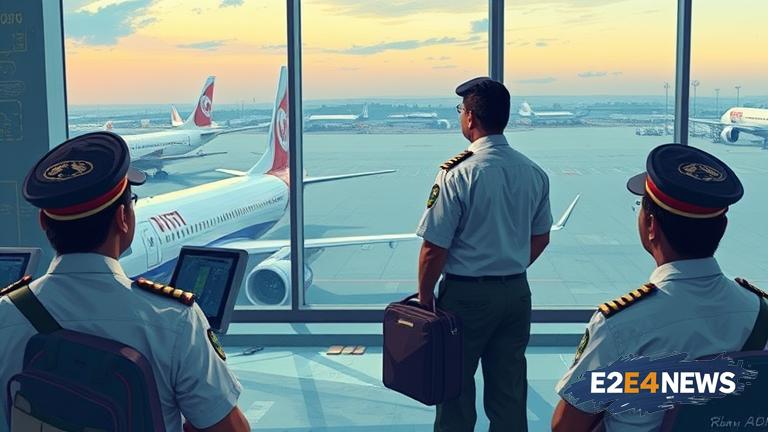The Indian aviation sector has been experiencing a significant surge in travel demand, with the number of air passengers increasing exponentially over the past year. This has resulted in a shortage of pilots, with many airlines struggling to find qualified and experienced pilots to operate their flights. The situation has been further complicated by the recent crash of an Air India plane, which has raised concerns about the safety and well-being of passengers. The Indian government has been working to address the shortage, with initiatives such as increasing the retirement age of pilots and providing training to new recruits. However, the problem persists, with many airlines being forced to cancel or delay flights due to a lack of available pilots. The shortage has also led to an increase in pilot salaries, with many airlines offering attractive packages to retain their existing pilots. The Indian aviation sector is expected to continue growing, with the number of air passengers projected to increase by 10% annually over the next five years. This will further exacerbate the pilot shortage, unless urgent measures are taken to address the issue. The government has also been working to improve the working conditions of pilots, including providing better rest facilities and reducing their workload. The Air India crash has also raised concerns about the safety and maintenance of aircraft, with many experts calling for stricter regulations and more frequent inspections. The Indian aviation sector is a critical component of the country’s economy, with many industries relying on air travel to transport goods and people. The pilot shortage has also had a ripple effect on the economy, with many businesses being impacted by the cancellation or delay of flights. The government has been working to promote the aviation sector, with initiatives such as the UDAN scheme, which aims to increase air connectivity to smaller towns and cities. However, the pilot shortage remains a major challenge, with many airlines struggling to find qualified pilots to operate their flights. The situation is further complicated by the fact that many Indian pilots are being lured away by foreign airlines, which offer better salaries and working conditions. The Indian government has been working to address this issue, with initiatives such as providing tax incentives to pilots who stay in the country. The pilot shortage has also led to an increase in the number of foreign pilots being hired by Indian airlines, which has raised concerns about the safety and security of passengers. The Indian aviation sector is expected to continue growing, with the number of air passengers projected to increase by 15% annually over the next ten years. This will require a significant increase in the number of pilots, which will be a major challenge for the industry. The government has been working to address the shortage, with initiatives such as increasing the number of flying schools and providing training to new recruits. However, the problem persists, with many airlines struggling to find qualified and experienced pilots to operate their flights. The pilot shortage has also had a significant impact on the environment, with many airlines being forced to use older, less fuel-efficient aircraft due to a lack of available pilots. The Indian government has been working to promote the use of more fuel-efficient aircraft, with initiatives such as providing tax incentives to airlines that use newer, more efficient planes.
